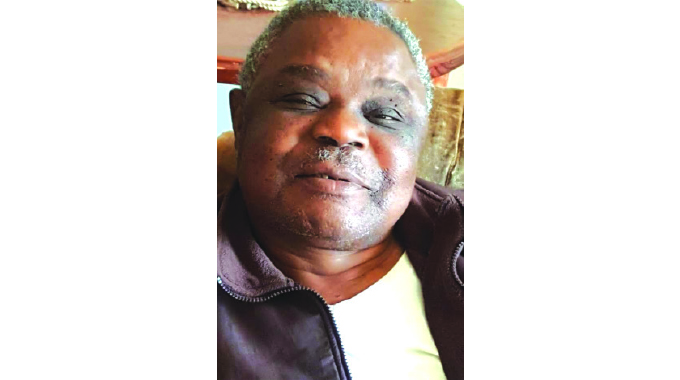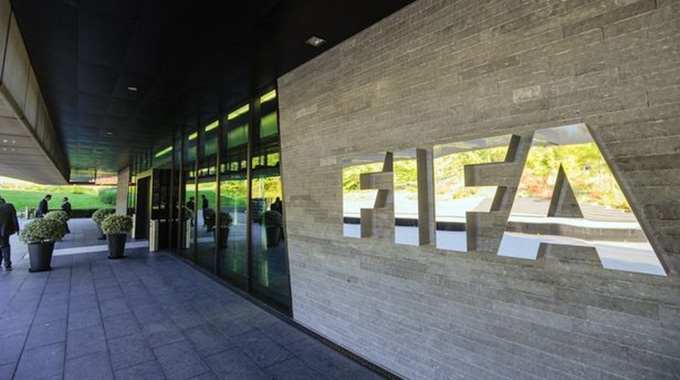Obituary: Gwitira ignited liberation struggle

Walter Muchinguri-Senior Writer & Researcher Zimpapers Knowledge Centre
The late veteran of the liberation struggle, Cde John Munodawafa Gwitira (nom-de-guerre Kenneth Gwindingwi), who died at Murambi Gardens on Tuesday at the age 72, was born on October 17, 1949 at Nyanyadzi Clinic in Chimanimani District in Manicaland.
He attended Nyanyadzi Primary School up to Standard 4 before proceeding to Mutambara Mission for Standard 5 and 6.
After completing primary school, he enrolled at Mt Selinda for Form 1 and 2.
While in Form 2 in 1964, his father was arrested and put under restriction at Hwahwa Prison and his visits to see his father became his first political orientation.
He became a Zanu youth member and grew up with Arthur Maramba, who later commandeered the famous Chinhoyi 7 Group.
It was at WhaWha that he first met and got to know the late former President Robert Mugabe, who was a detainee at the prison at the time.
In 1965, he proceeded to Mt Selinda’s sister school, Chikore Secondary School for Forms 3 and 4 and was expelled in 1966 while in Form 4 after clashing with some of his teachers over political differences.
Cde Gwitira completed his O-Level through correspondence and he wrote his examinations in January 1967 and passed.
In 1968, he enrolled at Chibero Agricultural Training College because he wanted to be a land development officer, which was the highest position for a black person at that time.
He was interviewed and passed.
During his second year at the college in 1970, he was expelled together with Joel Ngorima and Thembinkosi Khumalo, who was a Zapu member.
Mr Robbie Mupawose, who was the first black lecturer at Chibero, tried to plead his case, but Cde Gwitira had already made up his mind to join the struggle because he was already a marked person.
Whites had already concluded that he was “hot-headed and troublesome”.
After his expulsion, he went back home to Nyanyadzi and on September 30, 1970 just a day before the start of a new term, he packed his bag and jumped onto a truck that took him to Mutare and from there he got onto a train to Harare.
In Harare, he proceeded to Cold Comfort Farm where he was given a lot of newspapers before he got on a train to Bulawayo on the next day.
From Bulawayo, he went to Thekwani High School in Plumtree where his brother Joshua was learning and, who facilitated his crossing the border into Botswana.
Once in Botswana, Cde Gwitira proceeded to Francistown where he met the contact that he was given in Harare, Thomas Deka. He was then re-christened Kenneth Gwindingwi.
“That day, the name John Gwitira died,” he said during an interview with The Sunday Mail in October 2015. “All my school certificates vanished there and then. I had to reclaim my certificates after independence. So, from this time I became a liberation war fighter straight away.”
The next day, Cde Phibian Shonhiwa, whom he had met during his visits to Hwahwa, came to collect him and took him to one of the prisons in Francistown, which was the safest place for prospective comrades to hide at the time, due to marauding Rhodesian policemen who were kidnapping people in the neighbouring country and killing them at the border.
After about a week, Cde Shonhiwa came and gave Cde Gwitira a ticket to fly to Lusaka where he formally joined the liberation struggle. In Lusaka, Cde Gwitira was met by Cde Chihota and Cde Simpson Mutambanengwe who took him to Cde Hebert Chitepo’s house where he was interrogated and thereafter, he was transferred to Cde Josiah Tongogara’s house.
After three months, he and others such as Abel Sibanda were taken to Tanzania for military training.
They were first taken to Intumbi, where Cde Chigohwe was in charge of security.
“When he heard that I was coming from Chibero College, he said regai ndimbonyatsovheta mupfana uyu (let me properly vet this young man.) He could not understand how one could leave Chibero College to join the liberation struggle,” said Cde Gwitira said during The Sunday Mail interview.
“He was always saying “kuhondo ndekwevanhu vasina kufunda”.
“I almost got messed up here, but my visits to WhaWha saved me because I knew quite a number of comrades from that time. I told Chigohwe my history and later he understood. I remember I also met Cde Godfrey Savanhu. During this time, there were very few recruits.”
The state of Intumbi came as a shock to him. It was a former German mine which had been abandoned in 1947 and its buildings were dilapidated.
Another shock was when they were given khakhi uniforms instead of proper army fatigues, “and the first training was to make us run 7km to and fro. During the first days, ndakamborwadziwa. Ndakasvuuka, kwete mbichana. Some of our instructors were Chinese,” he said.
They underwent political orientation before they were taught how to fight. In 1971, Cde Gwitira and others proceeded to Mgagao for advanced training and were trained to be instructors.
“There were very few of us. We were trained to be commanders of the war. I was very lucky to be a commander from the word go. Cde Joseph Khumalo had gone to war earlier, but when I went to the front, I became his commander,” he said.
“The training at Mgagao was to perfect us; to know how to shoot to kill moving objects; how to cross flooded rivers and many obstacles. We were about 28 during this training. I was now a member of the General Staff and I was already a detachment commander.”
From Mgagao, Cde Gwitira went to a transit camp, Dodoma, from which they were deployed to the front.
He crossed back into the country around April-May 1972 and faced one of his major challenges of crossing a flooded Zambezi River.
After crossing Zambezi River, they walked to Mukumbura for about three days. They had no water and most of their comrades succumbed to thirst and malaria because the area was very hot.
One of these was their commander Cde Rauya who died near Mukumbura River.
Read full story on www.herald.co.zw
At the time Cde Gwitira was deputy provincial commissar for Malawi, Mozambique, Zimbabwe province and subsequently he became provincial political commissar.
He had many comrades operating under him and at one point, he and the late national hero Cde Solomon Mujuru (then known by his nom-de-guerre Rex Nhongo) had to divide the comrades so that each commander would have fewer people under him.
He became the first provincial commander of the Chaminuka sector and his deputy was the late national hero Air Chief Marshal Josiah Tungamirai.
He and his units caused the Rhodesian forces sleepless nights due to sporadic shootouts, including one of the fiercest battles at Mupfubve and another at Magaranhewe after Mukumbura near the Chesa area, which shook the Rhodesians.
Cde Gwitira later left the war front to become Operations Commander of all training camps and travelled to Tanzania, where he deputised the late national hero Cde Robson Manyika.
This was after he had managed to recruit 2 000 comrades and ensured that the war was really ignited.
During this time, Cde Gwitira trained Vice President Constantino Chiwenga, late national heroes Air Chief Marshal Perrance Shiri, Major General Paradzai Zimondi and other top army officials.
Towards the end of 1974, he left for India where he had been appointed as Zanu’s representative.
During his stay in the Asian nation, he trained as a pilot after being awarded that country’s best scholarship, the Amilca Cabral Scholarship.
He returned to Lusaka in 1976 due to trouble within the party and stayed with the late Ndabaningi Sithole.
When Sithole decided to come back home for the internal settlement, they parted ways because Cde Gwitira felt he had sold out.
Cde Gwitira proceeded to Dar-es-Salaam where he completed his pilot training and married a Tanzanian wife.
After Independence he came back and joined Air Zimbabwe.
When the Zimbabwe National Liberation War Veterans Association was formed, Cde Gwitira became its inaugural chairman until 1997 when he was succeeded by the late national hero Cde Chenjerai Hunzvi, whom he then deputised.
In 2016, Cde Gwitira unsuccessfully contested in the Zanu PF primaries for Chimanimani West constituency after the seat was left vacant following the expulsion of Munacho Mutezo from the ruling party.
The elections were won by Cde Nokuthula Matsikenyere.
Cde Gwitira is survived by his wife Monica, six daughters and three grandchildren.
Mourners are gathered at Lovestock Farm near Old Mutare Mission in Mutasa District, Manicaland.








Comments